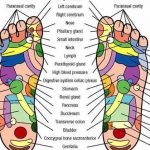In the U.S., the average age of menopause (i.e., the end of menstruation and thus your reproductive years) is around 51.
But did you know that your body may start preparing for this transition in your 30s? During this period, known as perimenopause, typically occurring between the ages of 35 and 45, hormone levels fluctuate, leading to potential physical and emotional symptoms. These symptoms vary in intensity from person to person, lasting anywhere from two to 14 years.
“These changes might be inevitable, but suffering through them is not,” says Mary Claire Haver, MD, a board-certified OB/GYN and founder of The ‘Pause Life. “It is critical that women understand what might happen, so that they are prepared.”
By educating yourself early on, you can have meaningful discussions with your doctor about menopause. Here are a few simple steps you can take in your 30s to make the menopausal transition smoother in your 40s and 50s:
1. Get enough calcium
Maximizing your bone density in your 30s is crucial for maintaining bone health in later years. Aim for the recommended dietary allowance of 1,000 milligrams of calcium per day through foods like yogurt, milk, cheese, canned sardines, and leafy greens.
2. Prioritize your heart health
Reduced estrogen levels during menopause can increase the risk of heart disease. Focus on cardiovascular exercise, resistance training, and a protein- and fiber-rich diet to support heart health.
3. Fill up on fiber
Eating fiber-rich foods can help protect against metabolic issues during menopause. Aim for at least 25 grams of fiber per day through fruits, vegetables, whole grains, and legumes.
4. Focus on strength training
Maintain muscle mass through strength training to protect bone density and prevent muscle loss during menopause. Aim for 150 minutes of moderate-intensity exercise per week with at least two days of resistance training.
5. Track your mental health
Fluctuating hormones during menopause can impact mental health, increasing the risk of depression. Be aware of changes in your mood and seek help if needed through daily journaling, meditation, or therapy.
6. Start searching for a provider well-versed in menopause
Choose a healthcare provider knowledgeable about menopause to guide you through this stage of life. Not all doctors are adequately prepared to address menopause, so finding the right clinician can make a significant difference in your journey.






